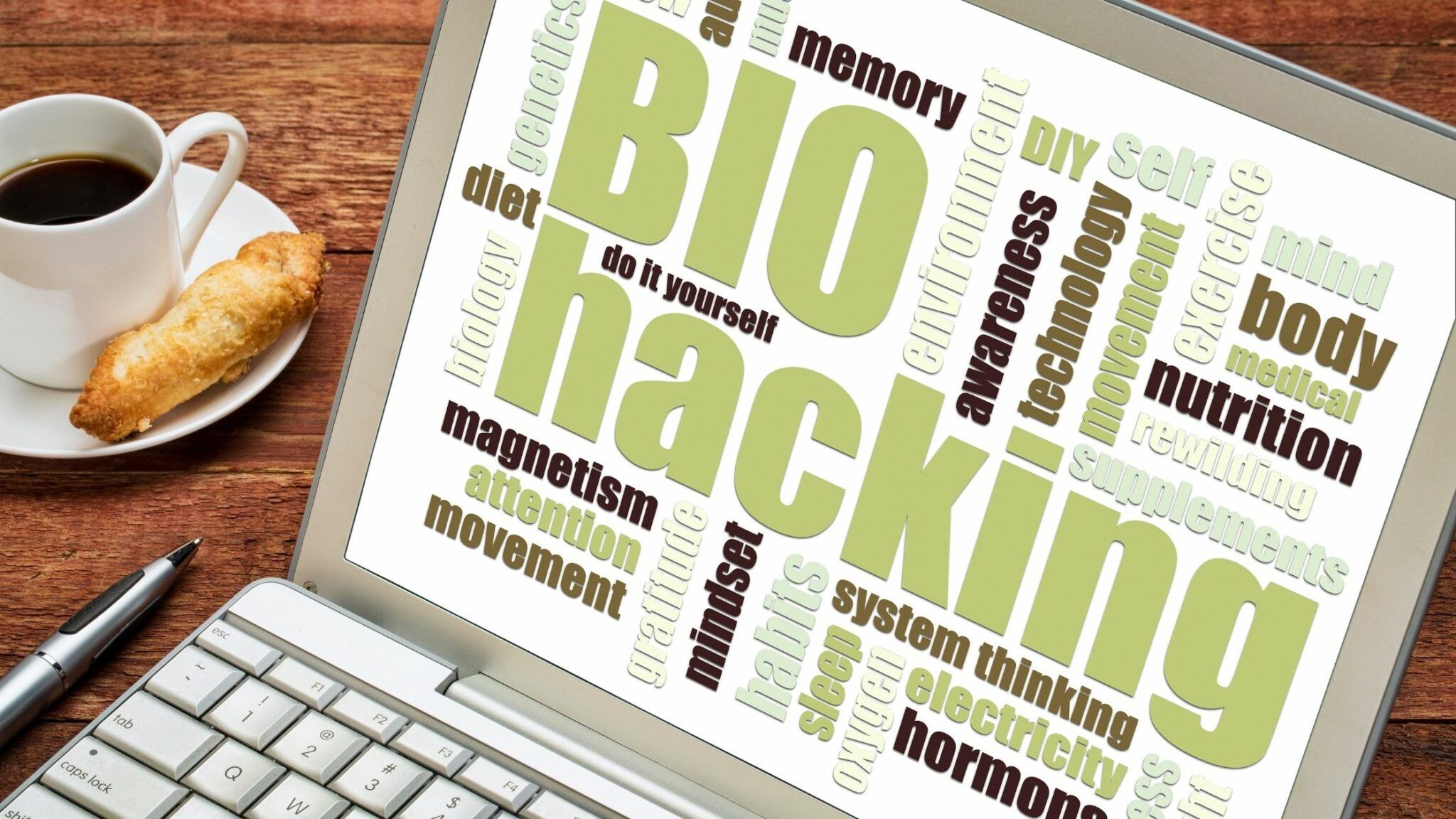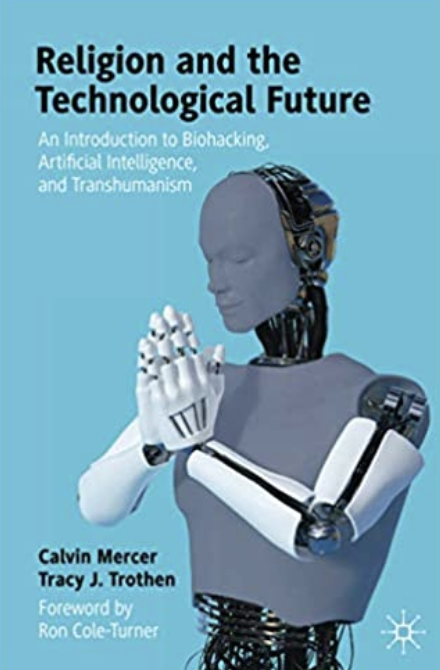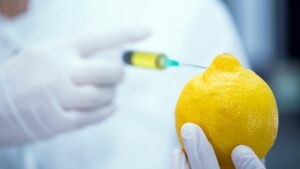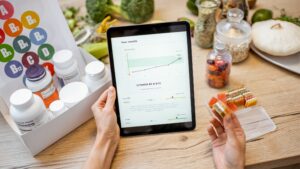Are you Already a Biohacker?

If our computer is hacked and the data is used by someone else, it makes you really angry. For this reason, the term hacker actually has a negative image. The biohacker has nothing to do with that. He doesn’t harm anyone because he hacks itself, so to speak. He wants to understand his own organism exactly. Makes sense, because only if you know how our system is connected and how it works can you influence certain processes in the body to your own advantage. The biohacker wants to become fitter, more concentrated and more focused, to feel better mentally and physically.
The subject is self-optimization. Biohackers seek a systematic approach to their own biology in order to achieve the absolute best version of themselves. It all sounds pretty theoretical. But what it’s actually about is nothing more than the basis of our health: eating habits, lifestyle, training routine. To optimize all of this, most of us would have to leave their comfort zone.
Prof. Dr. Wilhelm Bloch from the German Sport University in Cologne explains: “Similar to a hacker who wants to change a computer program, you try to change the body’s own program through stimuli.” To do this, he carried out an experiment with athletes whom he had a fasting cure during a high-intensity training phase. This means relative stress for the body, because it has to perform a lot but receives few calories. Bloch found that in addition to detoxification, the system is also being changed. In the majority of athletes, the metabolism was changed after the end of the course and the body processed nutrients more effectively.
Biohacking for a better you
In fact, there are many levers that a biohacker can turn. For active people, HIIT (high-intensity cardio interval training) could be a “biohack” because it increases your heart rate and muscle utilization. That makes you fitter and you feel better all round. With diet changes you can also set stimuli that change the system permanently. The same applies if you sleep less or more than usual. Nonetheless, Bloch points out that the term biohacking encompasses a great deal and that there is still no evidence for many things, i.e. proof of whether and what it ultimately brings about. This includes, for example, certain plant substances and dietary supplements. Whether such nootropics actually have a brain effect, i.e. increase mental performance, has not been proven yet.
Grinders take biohacking to extremes
Biohacking is not an invention of the digital age. For thousands of years people have been using certain herbs, plants and mushrooms to improve health and performance, relieve pain or cure diseases – in modern terms, to optimize their performance. But today we have a wealth of information and a lot of technical tools available, while our ancestors relied on the knowledge to be passed down from generation to generation. But our generation strives for more and more perfection. Those biohackers who want to take their optimization to the extreme and take a very straightforward approach are called grinders. “Grinder”, because they grind, modify their own body with NFC chips (Near Field Communication), navigation devices and headphones according to their own ideas. They strive to transform themselves into the first self-made cyborgs. But such experiments are not entirely safe.
The DIY biology, which has now become more widespread, is more harmless. There is already a global network for this branch of biohacking, on which insiders can exchange information about how to use gadgets and self-made centrifuges, microscopes and other tools. The most down-to-earth variant of the biohacker strives to want to improve our lives by consciously and sensibly applying science in everyday life. These can be dietary supplements, which the biohacker naturally knows everything about, or ingredients in skin care that we need individually and to achieve exactly what we want and what our skin needs.
Nanorobots and skin printers
Science shows us a future scenario that is breathtaking and a little terrifying at the same time. Not too far away we will be able to monitor our bodies closely with the help of science and advanced technologies. We will track our sleep patterns precisely with a monitor on the bed or with the help of nanorobots. After all, sleep is one of the most important factors for health and attractiveness.
At the same time, we will seamlessly control and regulate our intestinal health with bio-technology once science has explored the microbiome even better. We will use grounding mats to reduce inflammatory processes and promote a good night’s sleep. Everyone will have their own personal 3D skin printer at home to print their own skin. This is not so absurd when you consider that researchers from Toronto have already developed a 3-D printer that can heal even deep wounds quickly with the help of “bio-ink”. For the bio-printing of the skin, peptides will be used, which organize themselves, and amino acids, which allow a scaffold-like structure to grow within the skin.
Cell-level prevention
“The future will be geared much more towards prevention than before, and that on a cellular level,” confirms the London-based skin expert Jasmina Vico. She firmly believes in biohacking as the future of our skin care. “Monitoring one’s own health will help us understand how our body works and how it reacts to internal and external factors. It is different for each of us, but it will be the key to understand how inflammation occurs. ”It has long been known that it is the so-called silent inflammations that make people sick and old faster.

An Introduction to Biohacking
The brandnew book* considers the extreme possibilities of mind uploading, cryonics, and superintelligence. Chapters explore some of the political, economic, sociological, and psychological dimensions of these advances. The technological future is here – and it is up to us to decide its moral and religious shape. 284 pages, 53,49 €
Many international cosmetic groups are already investing in products that are tailored to the individual instead of one cream for everyone. Microbiome maintenance is a big topic. Solutions are already being researched that go far beyond prebiotics and probiotics. “Hardly any skin is still in balance today,” says the German doctor and cosmetologist Dr. Sabine Guett from Hamburg. Grooming products that target the microbiome can regulate homeostasis and bring pH back to healthy levels. Guett: “Microbiome care must look different for older skin than for pimple skin. We have to get an individualization. That’s the future. ”But that also means smearings and gene sequencing, and we’re not there yet. At the moment everyone has to try out for themselves which measures can be used to “biohack” themselves healthier, fitter and happier.
* This is an affiliated link. You don’t pay more. It is just a little thank you for our team.

CultureAndCream Author from Munich
To travel during my profession as a beauty journalist was never enough for my. Also my six month on a world trip didn’t do it. It always attracts me to other cities, foreign countries, on roadtrips and places I don’t know yet. But I am not only interested in “culture” and “cream”, I am also fascinated by people who have stories to tell . Such unique experiences I want to share with you.



